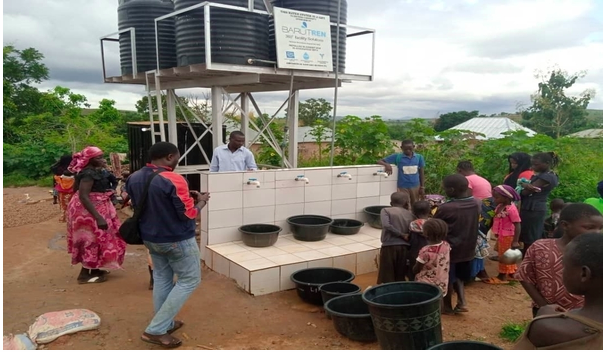Transparency advocacy group, BudgIT in Friday alleged that of the N100bn allocated to constiruency projects at the National Assembly, N58.2bn were spent on allegedly vague empowerment schemes.
The organisation said many of the schemes could not be traced.
“These empowerment projects have also been used as a funnel to transfer political benefits to party loyalists, particularly in a pre-election year,” the group said in a statement signed by Iyanu Fatoba, its Head of communication
It went further, “According to Tracka’s analysis, the 2022 ZIPs also consists of 41 projects with unspecified locations amounting to N4.89billion with the following breakdown by MDAs; Agriculture – 10, Education – 2, Health – 1, Humanitarian – 1, Information and Culture – 1, NASENI – 2, Science and Technology – 15, Water Resources – 3, SGF – 3, and Special Duties – 1. Tracka would like to reiterate the importance of having detailed documentation of project locations as this provides the citizens with the correct information to hold the government accountable.
“Whenever details of public projects are unavailable to the public, monitoring the implementation of such projects becomes difficult for the citizens, civil society, and auditing bodies. This creates a loophole for under-delivery and embezzlement of public funds.”
BudgIT said under the Federal Ministry of Water Resources, N250m was allocated for the Supply of motorcycles, grinding machines, and sewing machines to women and youth in North Central; however, no specific project location (state, local government area, ward, street and community) was stated.”
The statement also quoted Uadamen Ilevbaoje, Head of Tracka, expressing displeasure over the high level of misplaced priority regarding projects nominated by elected representatives, poor service delivery, and lack of citizen inclusion in the project nomination process by the legislators at the National Assembly.
“These irregularities were reflected in the high number of empowerment projects littered across the 2022 ZIPs. A case in point is the N28 billion allocated to the Federal Ministry of Agriculture under different agencies was not for agricultural-based projects but empowerment projects. Likewise, the office of the Secretary to the Government of the Federation had an allocation of N13 billion; however, a good number of projects under this office were empowerment projects that may not meet the people’s needs.
“Regarding projects domiciled in agencies whose mandates were not relevant to executing them, the Public Complaint Commission got N100m for procuring 1 unit of CAT D7H wheel bulldozer caterpillar equipment for rural road rehabilitation in Ondo Central Senatorial District, Ondo state. Tracka posits that an agency saddled with the responsibility of addressing public complaints from citizens has no business implementing constituency projects outside its purview.”
The statement added that in Kano State, the National Board for Arabic and Islamic Studies (NBAIS) Headquarters was mandated to supervise an N52 million project for the supply of assorted grain (Rice) in Tsanyawa and Kunchi Federal Constituency, Kano State. An educational institution should not be saddled with the responsibility of supplying grains.
“Projects should be assigned to appropriate ministries and agencies that have the mandate of overseeing them. The incapability of many agencies to effectively supervise projects has led to the poor execution of many projects, thereby wasting taxpayers’ funds”, added Uadamen.
Tracka calls on elected representatives to duly perform oversight functions, provide timely updates to the public, carry citizens along, and ensure the quality implementation of the projects they nominated so that citizens can derive maximum benefits from public funds.


